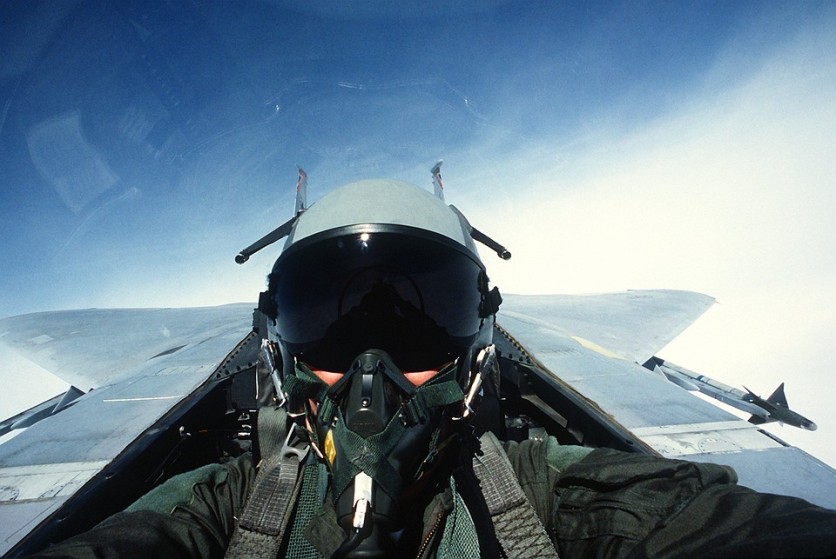Space missions are often conducted understand more about what is beyond our planet and crewed missions in particular require in-depth studies to ensure the safety of astronauts so that they can perform their scientific duties.
Now, a new study aims to understand the effects of space travel on the brains of astronauts by starting with F16 fighter pilots.

Brain Connectivity in Pilots
According to the study, the pilots had significant changes in their brain connectivity, making them potential test subjects for future research on space flight.
The study focused on the brains of F16 fighter pilots, whose ability to quickly interpret conflicting sensory data and adjust to changed gravity levels may be quite similar to that of astronauts.
Pilots with more flight experience had distinct brain connection patterns in regions associated with processing sensorimotor information, according to the research team's MRI scans.
Compared to non-pilots, they also displayed changes in brain connectivity. The study may improve astronaut or pilot training programs and help researchers better understand the brain effects of spaceflight.
Given the rarity of astronauts, the researchers who conducted the current study reasoned that they would be able to learn more by examining the brains of people who work in a slightly related field.
"Fighter pilots have some interesting similarities with astronauts, such as exposure to altered g-levels, and the need to interpret visual information and information coming from head movements and acceleration (vestibular information)," Floris Wuyts of the University of Antwerp, senior author of the study, said in a press release statement.
"By establishing the specific brain connectivity characteristics of fighter pilots, we can gain more insight into the condition of astronauts after spaceflight."
To conduct the first-ever study on functional brain connectivity in fighter pilots, the researchers enlisted 10 fighter jet pilots from the Belgian Air Force, along with a control group of 10 non-pilots, and had their brains scanned using an MRI machine.
Read Also : NASA's Studies on Hibernating Squirrels May Help Astronauts in Future Space Missions; How?
The Findings
Researchers discovered differences in brain connectivity between more experienced and less experienced pilots, which may indicate that changes to the brain happen as flight hours grow.
Less connection was present in some brain regions that process sensory information as a result of these variations, which may be a sign that the brain has adapted to deal with the challenging conditions encountered during flight, according to the team's findings.
Pilots with more experience also displayed improved connectivity in frontal regions of the brain that are likely involved in the cognitive demands of piloting a complicated jet.
The brain regions processing vestibular and visual information were shown to be more connected in pilots as compared to non-pilots.
This may be due to the need for pilots to select the most crucial stimuli, such as reading cockpit instruments, while simultaneously processing many and occasionally contradictory visual and vestibular information.
According to Dr. Wilhelmina Radstake, the study's first author, their results indicate that using pilots as a study group may aid in understanding the brain's adjustments to unusual gravitational environments, especially in spaceflight.
The results of the study were published in the journal Frontiers in Physiology.
Related Article : Japan Seeks to Explore if AI-powered Robotic Seals Can Relax Astronauts

ⓒ 2025 TECHTIMES.com All rights reserved. Do not reproduce without permission.




